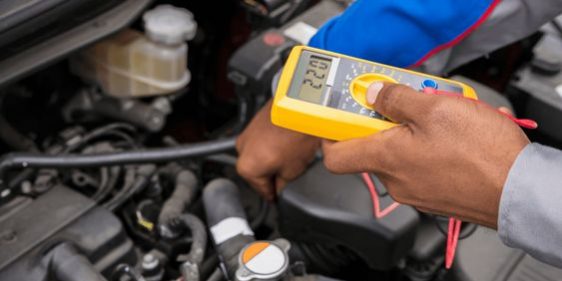The life expectancy for your car battery is typically between four to six years. Several factors determine how long your battery will last, for example weather conditions, vehicle type and driving habits.
There are, however, several key pointers you can utilize to help increase the life expectancy of your car battery.
Tips To Maintain Your Car Batteries
• Make sure to check all of the electrical connections and ensure the battery is kept clean and dry. If corrosion has built up over time, baking soda in a water solution and an old toothbrush is ideal to clean the battery terminals. Just make sure to remove the negative terminal first. When reapplying the terminals, connect the positive terminal first.
• Frequent, short car trips reduce the lifespan for car batteries. It takes roughly eight hours of continuous driving for the alternator to fully charge the battery. If the battery infrequently receives a full charge, strong crystalline deposits can form on the negative plates and consequently prevents the battery from charging properly – this is called sulphation. If short car trips are a part of your daily routine, avoid using electric auxiliary controls unnecessarily – this will prolong the lifespan of the battery and also help you save on fuel.
• Cold weather makes it more difficult for an already weakened battery to hold its charge. Storing your car in a garage during spells of cold weather should keep the battery warmer and, therefore, easier to charge.
• If your car isn’t in use for long periods of time, removing the negative battery connection during periods of non-use assists in the longevity of your battery. Just make sure to reconnect the terminal before attempting to start the car.
• The electrolyte (acid/water) solution levels may be low. If your battery is not maintenance-free, you may need to adjust the solution levels. If the levels are low, be sure to use the necessary safety precautions when you are handling battery acid. Only use distilled water, or you will damage the battery.
Charging your battery
• When charging your car, it is not only safer, but better for your battery to opt for the slow charging method. A fast charge increases the potential of overcharging your battery and can create permanent damage.
Replacement and recycling
• It is not ideal for you to dispose of automotive batteries in the trash. Instead, batteries must be taken to certified recycling centers where they can be treated, and often reused. If you are replacing the battery in your vehicle, you may need to exchange the old one when purchasing a new one, otherwise, you will need to arrange to have the battery brought to a recycling center that accepts batteries.
Keeping your car battery fully charged means your battery will have a longer lifespan and use energy more efficiently.
Waiting until you break down before replacing your car battery is avoidable. As batteries can pose several dangers, it is advised you seek professional help from a battery specialist before attempting any repairs yourself.
However, if you are looking to get new batteries for your car, we can help you source from the best around the world. Call +2348083073047 or send a mail to info@sygniteng.com to get started.


